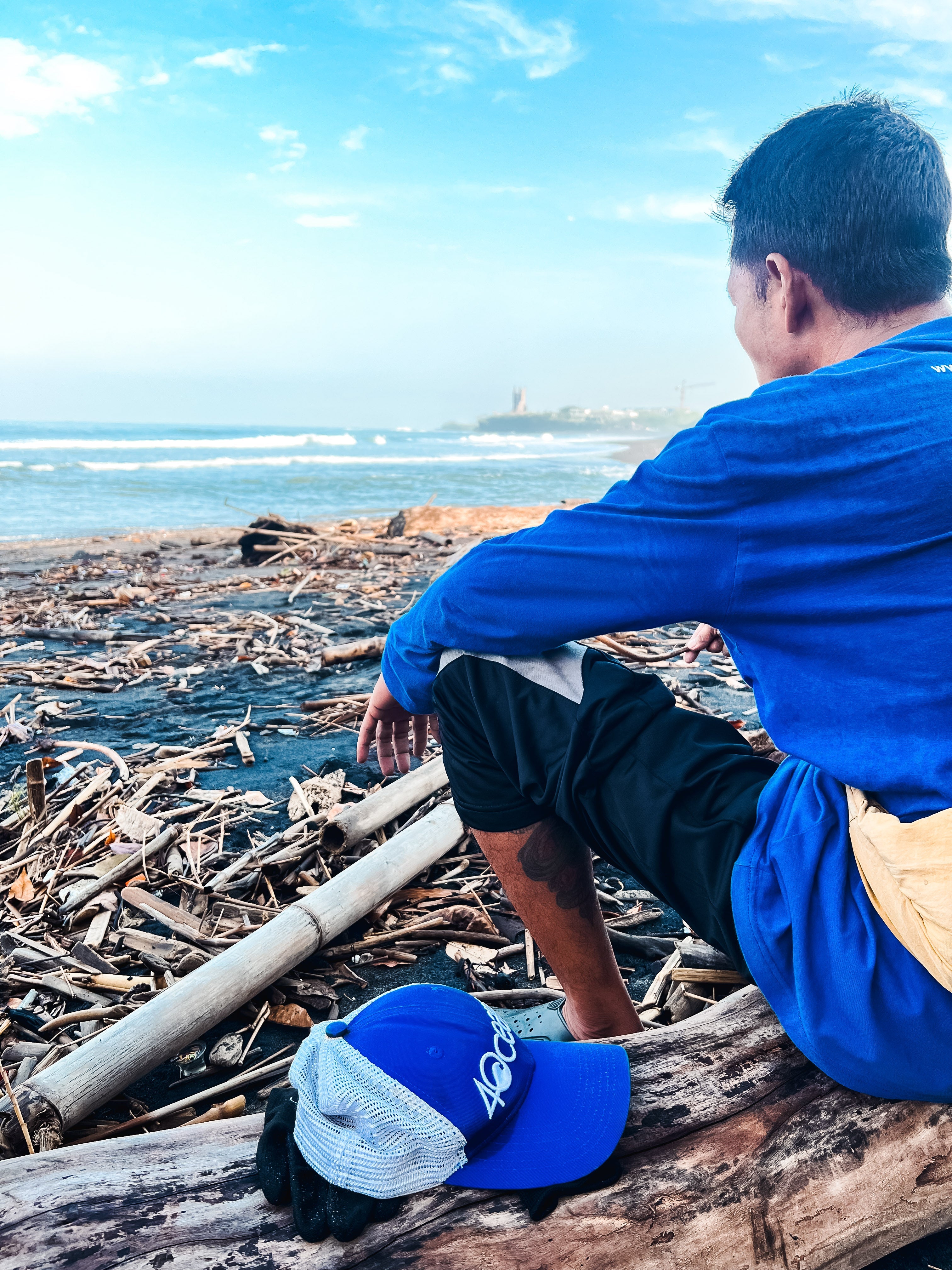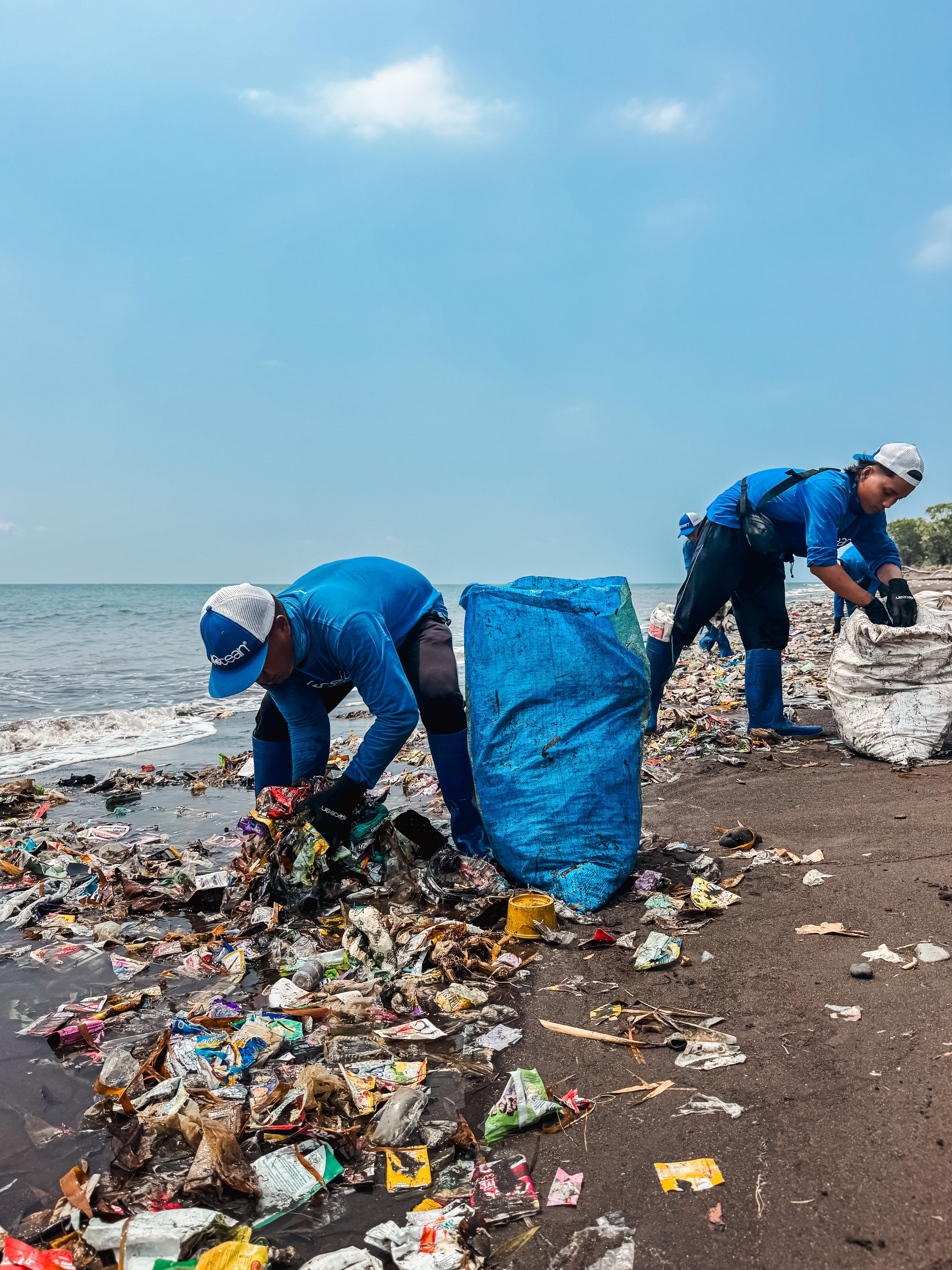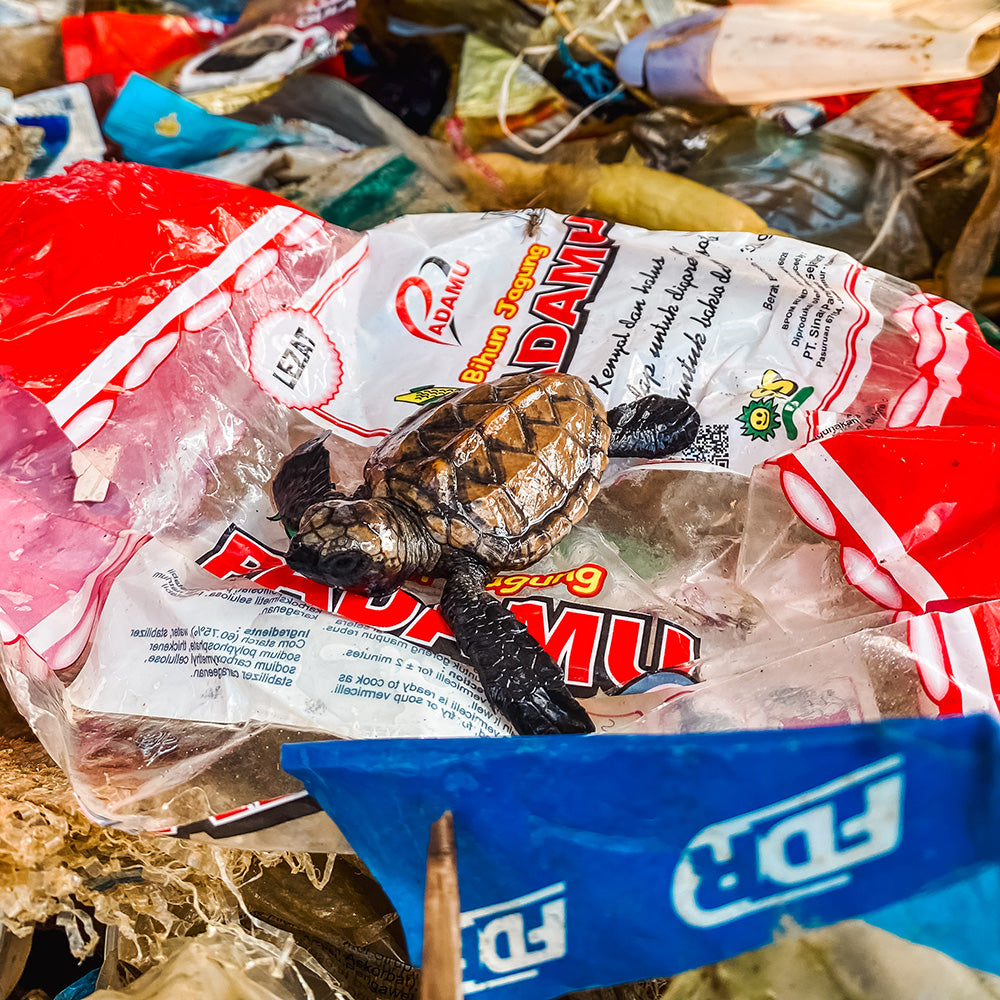5 MIN READ
04-20-2025
A Sea of Plastic and the Fight to Save Turtles
Kubik, 4ocean Jembrana Content Correspondent
By 7 a.m., the 4ocean Jembrana crew was already on the dock at Pengambengan, loading up gear and checking the skies. The weather was overcast, a warning sign for the sea ahead. Daily supervisor Wahyudi gave the morning briefing with one clear reminder: be alert and be ready—anything can happen out there.
This operation was one of the first led by The Dugong, Unit 09—4ocean’s newest vessel in Bali, supported by the 4ocean Foundation. Purpose-built for offshore operations, the vessel played a critical role in covering wide zones and supporting multiple rescue efforts during the day.
Each unit headed out in separate directions, scanning for floating waste between Melaya and Gilimanuk. At first, it was business as usual—bits of scattered plastic here and there. But around midday, Unit 04 sent a call that changed the day: a massive patch of trash had surfaced near Rening, roughly 8 kilometers offshore.
When all units converged on the location, what they saw was overwhelming.
“The surface of the ocean was blanketed in trash,” one crew member said. “It stretched as far as the eye could see—nearly five kilometers of plastic and debris.”
Among the floating waste were plastic bags, styrofoam, bottles, sacks, even dolls—a brutal mosaic of human neglect. But the most heart-wrenching sight wasn’t the trash. It was what was caught inside it.
Three hawksbill sea turtles had become tangled in ropes and suffocated by plastic. Luckily, they were still alive—barely.
“We must always remember that the ocean is home to many living creatures, including sea turtles,” the crew reflected. “By keeping the ocean clean, we’re playing an important role in protecting life.”
One turtle was trapped in a plastic bucket, unable to move. Another had barnacles thickly crusted on its shell and looked disoriented from exhaustion. The third was bound tightly in rope and seaweed, almost invisible against the mess of debris. Crew members Zidan, Rizal, and Abim worked quickly, gently freeing each animal, cleaning their shells, and helping them breathe.
After 30 minutes of basic rehabilitation aboard the pontoon, the turtle began to stir. One by one, they were released back into the open water, the team watching with quiet hope as they swam into the distance.
This operation was led by The Dugong, Unit 09—4ocean’s newest vessel in Bali, supported by 4ocean Foundation. Purpose-built for offshore operations, the vessel played a critical role in covering wide zones and supporting multiple rescue efforts during the day.














